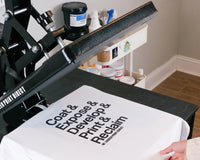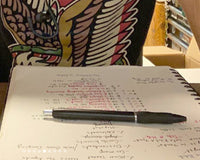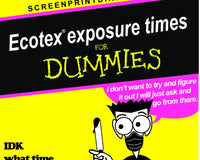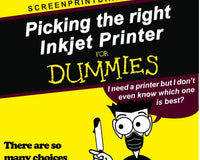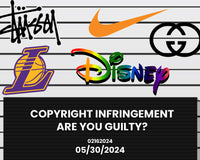What is a copyright?
According to Investopedia.com “Copyright refers to the legal right of the owner of intellectual property. In simpler terms, copyright is the right to copy. This means that the original creators of products and anyone they give authorization to are the only ones with the exclusive right to reproduce the work.” Copy right protects various creative works such as but not limited to novels, poems, songs, plays, paintings, computer programming.
In this blog we are addressing copyrights for artwork as this is a common problem we see screen printers facing when developing artwork for printing.
What are the consequence's of violating a copyright?
The penalties for violating copyright can vary depending on the severity of the infringement and the jurisdiction. In general, the penalties for copyright infringement can include:
- Civil Penalties: This can include paying damages to the copyright holder, which may be calculated based on actual damages suffered by the copyright holder or statutory damages set by law.
- Injunctions: A court may issue an injunction, which is a court order requiring the infringing party to stop using the copyrighted material.
- Seizure and Destruction of Infringing Copies: Courts may order the seizure and destruction of infringing copies of copyrighted works.
- Criminal Penalties: In some cases of willful and egregious copyright infringement, criminal penalties may apply. This can include fines and even imprisonment.
- Legal Fees: The infringing party may be required to pay the legal fees of the copyright holder if they are found guilty of infringement.
Best Ways to Avoid Copyright Infringement
- Obtain Permission: The safest way to avoid copyright infringement is to obtain permission from the copyright holder before reproducing their work. This might involve contacting the owner of the design and negotiating a licensing agreement.
-
Create Original Designs and keep documentation: Develop and use original designs that you or your team have created. This eliminates the risk of infringing on someone else's copyright. Maintain records of your design process, including sketches, drafts, and notes, to demonstrate the originality of your work in case of any copyright disputes.

- Use Public Domain: Utilize designs that are in the public domain. Public domain works are not protected by copyright and can be freely used by anyone. For more information on Public Domain please click
-
Use Digital Packs: By purchasing digital packs you gain access to content that is approved and licensed to be used for commercial use. These are sold using a Creative Commons license. This type of license allows creators to give permission to other peoples to use their creative works while retaining some rights. For more information on Creative Commons license please click here

FAQ Copyright Questions
What if I accidentally infringe on a copyright?
If you accidentally infringe on a copyright, the consequences can vary depending on the severity of the infringement, the actions of the copyright holder, and the laws in your jurisdiction. In less serious cases you may just receive a cease and desist letter however in other situations legal action may take place. Therefore we recommend you do your due diligence if not using completely original artwork.
Am I liable for violating a copyright infringement if I am just printing what my customer requested?
Yes, you could potentially be liable for copyright infringement if you knowingly print a copyrighted image requested by a customer without obtaining the necessary permissions from the copyright holder.
Can I use artwork generated by AI for my screen printing artwork?
Given the complexities involved in using AI-generated artwork for commercial purposes like screen printing, it's advisable to seek legal advice to ensure that you're complying with copyright law and respecting the rights of others.
Our advice to you. Create original work and do your due diligence when asked to print artwork you didn't design. Copyright infringement consequences are to unpredictable. You might get a simple letter or you might get a $50,000 fine, who knows? Be cautious printers.



